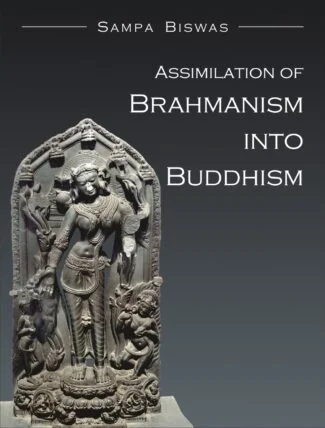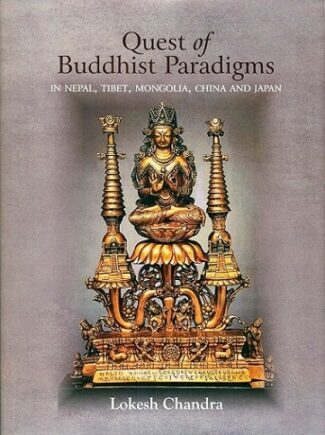

Buddhist Ethics in I...
Buddhist Ethics in Impermanence
by: M.V. Ram Kumar RatnamThe book introduces the fundamental ethical precepts of Buddhism, which are significant and relevant to contemporary society, as these are not restricted to any caste, creed, race, region and language. It also reveals the Buddhist solution to the problems of war, suicide, gender inequality, etc.
Original price was: ₹700.00.₹630.00Current price is: ₹630.00.
ISBN: 9788124605622
Year Of Publication: 2010
Edition: 1st
Pages : xi, 204
Bibliographic Details : Bibliography; Index
Language : English
Binding : Hardcover
Publisher: D.K. Printworld Pvt. Ltd.
Size: 23
Weight: 500
The book introduces readers to the fundamental ethical precepts of Buddhism. Buddhist ethics are significant and relevant to contemporary society, as these are not restricted to any caste, creed, race, region and language. The ethical precepts of Buddhism are flexible and autonomous in character. They are of a very practical character, such that they can be easily adapted and applied to modern times. The precepts are essentially taken from the sacred texts of Buddhism.
This volume comes in an attempt to highlight the philosophical and ethical bases of Buddhism. It classifies the ethical precepts of Buddhism in order to show their relevance to different categories of people monks, nuns and Buddhist lay people as well as non-Buddhists. It brings out the autonomous character of Buddhist ethics and the ethical idealism of Buddhism to show that the precepts have a pragmatic character. It also reveals the Buddhist solution to problems in the world in general and individual societies in particular, problems of the nature of war, suicide, gender inequality which existed in ancient times and continue to exist today.
The book will be extremely useful to scholars and students of Buddhist philosophy and ethics.
Preface
Introduction
1. Fundamental Tenets of Buddhism
Background
The Pali Canon
Noble Character
Critique of Scholasticism
Theory of Causation
The Notion of Real
The Four Noble Truths (Ariya Saccani/Arya Satya)
The Nature of Reality
God and Soul
Rebirth and Nibbana/Nirvana
Social Significance
Morality
The Moral Law
Buddhism as Philosophy
Radical Pessimism
Immortality
Survival of Values
2. Taxonomy of Buddhist Ethics
Socio-philosophical Foundations of Buddhism
Classification of Buddhist Ethics
3. Autonomous Character of Buddhist Ethics
Moral Autonomy
Moral Pragmatism
Self-Restraint
Temperance
Contentment
Patience
Reverence
Gratitude
Toleration
Veracity
Righteousness
4. Idealist Nature of Buddhist Ethics
Evolution of the Buddhist Ethics
Right Opinions (Sammaditthi/Samyakdgrshti)
Right Aspirations (Sammasamkappa/
Samyaksankalpa)
Right Speech (Sammavaca/Samyakvak)
Right Actions (Samakamanta/Samyakkarmanta)
Right Livelihood (Sammajiva/Samyakajiva)
Right Efforts (Sammavayama/Samyakvyayama)
Right Mindfulness (Sammasati)
Right Contemplation (Sammasamadhi)
Pragmatic Purport of the Noble Eightfold Path
(Arya-ashtanga-marga)
Ethical Categories as Ideals
Critical Reflections
5. Buddhist Ethics and the Contemporary Society
Climate Change
Human Rights
Suicide
Euthanasia
Abortion
Homosexuality
Gender Equality
Trade and Economy
Violence and Peace
6. Conclusion
Bibliography
Index









